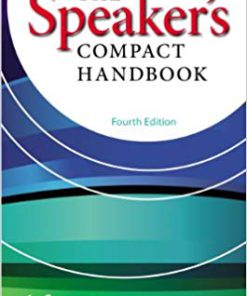(eBook PDF) Cengage Advantage Ethics: Discovering Right and Wrong 8th Edition
$50.00 Original price was: $50.00.$35.00Current price is: $35.00.
(eBook PDF) Cengage Advantage Ethics: Discovering Right and Wrong 8th Edition – Instant Download
(eBook PDF) Cengage Advantage Ethics: Discovering Right and Wrong 8th Edition – Digital Ebook – Instant Delivery Download

Product details:
- ISBN-10 : 1305584554
- ISBN-13 : 978-1305584556
- Author: Louis P. Pojman
ETHICS: DISCOVERING RIGHT AND WRONG, 8E is a conversational and non-dogmatic overview of ethical theory. Written by one of contemporary philosophy’s top teachers and revised by a best selling author, this textbook even-handedly raises important ethical questions and challenges students to develop their own moral theories by applying them. This revision also presents an even broader presentation of various positions, featuring more feminist and multicultural perspectives as well. ETHICS: DISCOVERING RIGHT AND WRONG, 8E begins with easy to read chapters that introduce questions of meta-ethics and major moral theories. Later chapters address special topics in personal and religious ethics as well as the most recent developments in moral theory, including a new chapter on Biology and Ethics. Study questions for each chapter, along with useful bibliographies, make grasping the material more accessible than ever.
Table contents:
1. WHAT IS ETHICS?
Ethics and Its Subdivisions. Morality as Compared with Other Normative Subjects. Traits of Moral Principles. Domains of Ethical Assessment. Conclusion.
2. ETHICAL RELATIVISM.
Subjective Ethical Relativism. Conventional Ethical Relativism. Criticisms of Conventional Ethical Relativism. Conclusion.
3. MORAL OBJECTIVISM.
Aquinas’ Objectivism and Absolutism. Moderate Objectivism. Ethical Situationalism. Conclusion.
4. VALUE AND THE QUEST FOR THE GOOD.
Types of Values. Foundational Nature of Values. The Good Life. Conclusion.
5. SOCIAL CONTRACT THEORY AND THE MOTIVE TO BE MORAL.
Why Does Society Need Moral Rules? Why Should I Be Moral? Morality, Self-Interest, and Game Theory. The Motive to Always Be Moral. Conclusion.
6. EGOISM, SELF-INTEREST, AND ALTRUISM.
Psychological Egoism. Ethical Egoism. Arguments Against Ethical Egoism. Conclusion.
7. UTILITARIANISM.
Classic Utilitarianism. Act- and Rule-Utilitarianism. Criticism of Utilitarianism. Criticism of Ends Justifying Immoral Means. Conclusion.
8. KANT AND DEONTOLOGICAL THEORIES.
Kant’s Influences. The Categorical Imperative. Counterexamples to the Principle of the Law of Nature. Other Formulations of the Categorical Imperative. The Problem of Exceptionless Rules. Conclusion.
9. VIRTUE THEORY.
The Nature of Virtue Ethics. Criticisms of Action-Based Ethics. Connections Between Virtue-Based and Action-Based Ethics. Conclusion.
10. BIOLOGY AND ETHICS.
Moral Behavior in Animals. Morality and Human Evolution. What is Left for Traditional Morality? Conclusion.
11. GENDER AND ETHICS.
Classic Views. Female Care Ethics. Four Options Regarding Gender and Ethics. Conclusion.
12. RELIGION AND ETHICS.
Does Morality Depend on Religion? Is Religion Irrelevant or Even Contrary to Morality? Does Religion Enhance the Moral Life? Conclusion.
13. THE FACT-VALUE PROBLEM.
Hume and Moore: The Problem Classically Stated. Ayer and Emotivism. Hare and Prescriptivism. Naturalism and the Fact-Value Problem. Conclusion.
14. MORAL REALISM AND THE CHALLENGE OF SKEPTICISM.
Mackie’s Moral Skepticism. Harman’s Moral Nihilism. A Defense of Moral Realism. Conclusion.
Appendix.
Glossary.
Index.
People also search:
cengage 8th edition calculus
cengage ethics in information technology
cengage chapter 8 answers
8 ethics
You may also like…
Society, Politics & Philosophy - Major Branches of Philosophical Study
Ethics: Discovering Right and Wrong 8th Edition Louis P. Pojman – eBook PDF
Schools & Teaching
(eBook PDF) Cengage Advantage Books: Western Civilization: Beyond Boundaries 7th Edition











